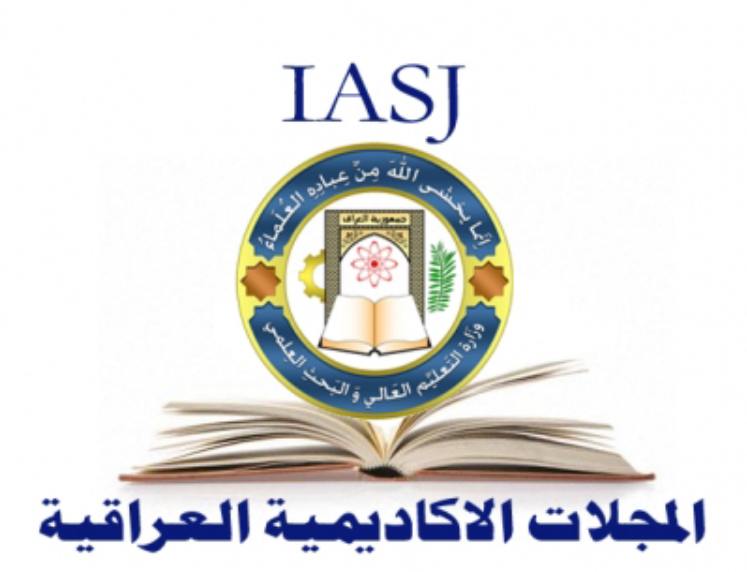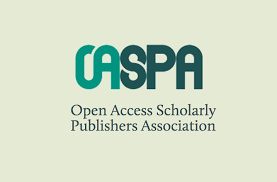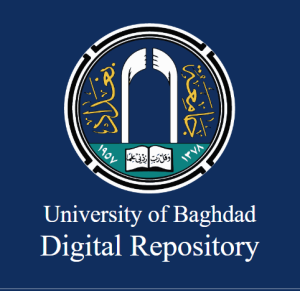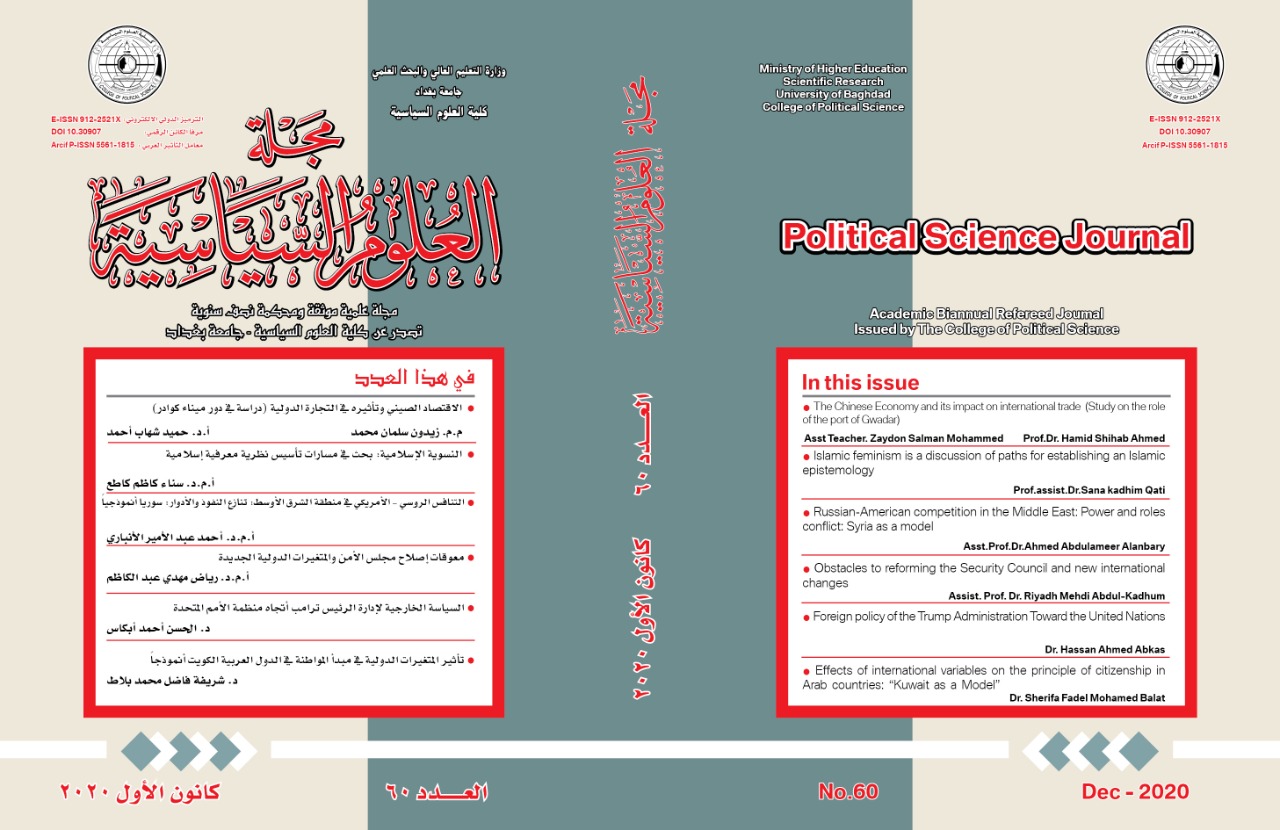دور متغير الثقافة الاستراتيجية في المفاوضات (بريكست أنموذجاً)
DOI:
https://doi.org/10.30907/jj.v0i59.459الكلمات المفتاحية:
: المفاوضات,الاتحاد الأوروبي,بريكست,الثقافة الاستراتيجية.الملخص
المفاوضات تتميز، بأنها وسيلة سهلة، وبسيطة بين الأطراف المتنازعة، وهي أداة فاعلة في الوقت ذاته، إذ تسعى الأطراف المتنازعة التفاهم على أنجع السبل لحل نزاعاتها، لكن المفاوضات ليست دائما مناسبة لحل المنازعات الدولية، لاسيما عندما يكون هناك تفاوت في القوة بين الدول المتفاوضة، أو عندما يفتقد حسن النية، أو حتى عندما تنعدم أو تقل مرونة أحد الأطراف، وقد تؤدي الظروف الداخلية لإحدى الدول المتنازعة دورا سلبيا او ايجابياً في نجاح المفاوضات، بعيداً عن تأثير دور المتغيرات الخارجية في ذلك. ولا يخطئ من يعتقد،إن العملية التفاوضية تتأثر بجملة من المتغيرات الداخلية/ المجتمعية، والتي تمثل ثوابت عقائدية تتركز عليها الشخصية التفاوضية عند انطلاق جولاتها، فلو تفحصنا معظم المفاوضات الدولية التي تجري في نطاق ثنائي ومتعدد،نجد هناك سمة تأثير الشخصية التفاوضية في طبيعة الدائرة التفاوضية عن طريق المؤثرات الاجتماعية والمواريث العقائدية في عقيدة العنصر التفاوضي، اذ تتأثر التركيبة العقائدية بجملة من المدارات والثوابت، والتي تنعكس في طبيعة التعاطي التفاوضي إثناء عملية المفاوضات.
المراجع
ii. Abdulaziz Othman Al-Toji, Arab Culture and Other Cultures, 1st edition, publications of the Islamic Educational, Scientific and Cultural Organization, APSCO, 2015, p. 76.
iii. Sabri Al-Maqdisi, Culture and the Dynamics of Renewal, 1st Floor, Karawan Printing and Publishing House, Erbil, 2010, p. 76.
iv. Nasser Youssef, Modern European Societies, 1st Floor, Dar Al Arabi Printing and Publishing, Cairo, 2015, p. 184.
v. Harold James, from the Bretton Woods, "The global cooperation that has prevailed since the end of World War II presents challenges from political forces, i 1, Finance and Development House, Cairo, 2017, p. 17.
vi. Muhammad Hassan al-Barali, Arab Culture and Globalization, 1st edition, Dar Al-Jeel for Printing and Publishing, Beirut, 2014, p. 253
vii. Mark Johansson, the funniest British habits in the workplace, the BBC Channel Network, an article posted on the Internet on the following link:
http://www.bbc.com/arabic/business/2015/09/150916_vert_cap_idiosyncrasies_of_a_british_office
viii. Philip M. Taylor, Public Diplomacy and Its Place in Foreign Policy, The Diplomatic Magazine, Issue 52, Riyadh, 2010, p. 40.
ix. Samir Nassif, in a book on British policy in the Middle East after the New York bombings, Arab Jerusalem, No. 2435, London, 2017, p. 22.
x. Fadwa Bennich, the Protestant Church and its relationship to Zionist Christianity, Al-Jazeera Channels Network, an article published on the Internet, on the following link:
http://www.aljazeera.net/specialfiles/pages/31aad23d-de78-4ab9-8d5f-df10478d69e2
xi. Fadwa Bennich, the Protestant Church and its relationship to Zionist Christianity, Al-Jazeera Channels Network, an article published on the Internet, on the following link:
http://www.aljazeera.net/specialfiles/pages/31aad23d-de78-4ab9-8d5f-df10478d69e2
xii. Christian Brown, Britain after the referendum: An anxious image of an angry and divided country, Al-Arab Newspaper, issue 101373, London, 2016, p. 15.
xiii. Hassan Talal Muqalled, Determinants of the European Common Foreign and Security Policy, Damascus Journal of Social and Legal Sciences, Volume 2, Issue 1, Damascus, 2009, p. 678.
xiv. Hasan Yunus, Diplomatic Personality, Palestinian Institute for Strategic Studies, Ramallah, 2013, p. 12.
xv. People translate the word in cultures with a higher context usually to a different meaning from the one literal meaning and assume that there is another meaning hidden that the speaker does not want to disclose directly, and we do not rule out that some people get confused when communicating in this type of culture, everyone is waiting for The other is to understand the inner meaning and the indirect message of his speech without the need to be clear or literal. In a culture with a high context, people translate speech according to their own culture, as opposed to a culture with a low context where people tend to understand speech literally.
xvi. Tom Fletcher, Omar Al-Bitar, What are the characteristics of a successful diplomat, Emirates Diplomatic Academy, Abu Dhabi, 2017, p. 41.
xvii. Salim Wasef, European-Russian Relations, 1st Floor, Dar Al-Noor Printing and Publishing, Beirut, 2014, p. 167.
xviii. Yasmin Nuri, will the European Union be able to overcome the shock of the Brexit exit, Al-Arab newspaper, No. 13017, London, 2016,
xix. Salam Haseeb, the British House of Commons agrees with a majority to launch the first phase of exit negotiations from the European Union, the BBC Channels Network, an article published on the International Internet Information Network on the following link:
http://www.bbc.com/arabic/world-38829946
xx. Abdel Hamid Al-Youssef, The Future of the European Union, 1st floor, Dar Al-Alam for Printing and Publishing, Cairo, 2018, p. 54.
xxi. Jaafar Abdullah, Evolution of the policies of European Union countries after the Cold War in the Maghreb region, Journal of Social Sciences, No. 318, Algeria, 2016, p. 53.
xxii. Maan Abdulaziz, European Union in light of the current international transformations, College of Political Science, Middle East University, unpublished Master Thesis, Amman, 2016, p. 62.
xxiii. Ahmed Abu Dahham, Britain slept and did not wake up, Al-Arab Newspaper, issue 13017, London, 2016, p. 19.
xxiv. Samir Salam, The British Economy in the Shadow of the European Union, Journal of Syrian Researchers, No. 65, Damascus, 2017, p. 12.
xxv. Ahmed Ali, the reasons that led the British to separate from the European Union, Al-Rai Al-Youm newspaper, an article published on the Internet, on the following link:
http://www.raialyoum.com/?p=463472
xxvi. Nawar Jamil Hashem, British Exit from the European Union, "A Study of Causes and Implications", The Arab Future Magazine, Center for Arab Unity Studies, No. 1423, Beirut, 2017, p. 53.
xxvii. Nasser Al-Amin, the expected consequences of Britain's exit from the European Union, Emirates Center for Policy, European Studies Unit, Abu Dhabi, 2017, p. 22.
xxviii. Hamed Salam, Negotiating Paths between the European Union and the British, Arab Future Magazine, Center for Arab Unity Studies, No. 1235, Beirut, Beirut, p. 75.
xxix. Hamid Abdul Karim, negotiations to exit Britain from the European Union begin today, Al-Jazirah Center for Studies, Doha, 2018, p. 6.
xxx. Saeed Hameed, launching the fifth round of the Brexit negotiations, the Al-Jazeera Channels Network, an article published on the Internet, on the following link:
http://www.aljazeera.net/news/international/2017/10/9/%D8%A7%D9%86%D8%B7%D9%84%D8%A7%D9%82%D8%A7%D9%84%D8%AC%D9%88%D9
xxxi. Muhammad Abdul-Jabbar, The Brexit Negotiations ... The Struggle Out and Inside, Al-Jazeera Center for Studies, an article published on the International Internet Information Network on the following link:
http://www.aljazeera.net/news/reportsandinterviews/2017/8/31/%D9%85%D9%81%D8%A7%D9%88%D8%B6%D8%A7%D8%AA%D8%A7%D9%84%D8%A8%D8%B1
xxxii. Hamdi Al-Hassani, Britain invites the European Union to continue the negotiations of Brexit, The World Channels Network, an article published on the Internet, at the following link:
http://www.alalam.ir/news/3095951/%D8%A8%D8%B1%D9%8A%D8%B7%D8%A7%D9%86%D9%8A%D8%A7%D8%AA%D8%AF%D8%B9%D9%88%D8%A7%D9%8
xxxiii. Hassan Hassouni, Prime Minister of Scotland: London is "incompetent" in the "Brexit" talks, Al-Sharq Al-Awsat newspaper, an article published on the Internet, at the following link:
https://aawsat.com/home/article/1106326/%D8%B1%D8%A6%D9%8A%D8%B3%D8%A
xxxiv. Nour Boswilf, The European Union and the British Exit Dilemma, Rabat Journal of Social Sciences, University of Nabatah, Rabat, 2018, p. 21.
xxxv. Fiona Renolod, a British exit from the European Union leads to a more polluted environmental future, Tariq Nasser, Nassa Elaraby agency series, No. 12, Beirut, 2017, p. 7.
xxxvi. Abdel-Baqi Rida, "Brexit" negotiations begin today between Britain and the European Union, Al-Arabi Al-Jadeed newspaper, an article published on the International Internet Information Network on the following link:
https://www.alaraby.co.uk/politics/2017/6/19/
xxxvii. Hani Salem, Mashour, British until the second independence, Shahroub Press Center, Riyadh, 2017, p. 33.
xxxviii. Norway is a member of the EFTA, which was founded in 1960, and has 10 British countries, Austria, Norway, Sweden, Denmark, Portugal, Switzerland, Finland, Iceland, and Liechtenstein. In the mid-seventies, the gradual withdrawal of some members in exchange for joining the European Economic Community (EEC) (the nucleus of the union in its current form) began from Britain and Denmark in 73, passing through Portugal in 86 and ending with Finland, Austria and Sweden in the year 95. Only 4 countries remain in the Trade Union. 3 countries entered the European Economic Area (EEA), and Switzerland preferred to draft a bilateral agreement in isolation from its trade union partners. Hence two distinct models emerged the Norwegian model and the Swiss model.
xxxix. Wissam Nasser, the European Union promises to defend its interests after Brexit, the Al-Jazeera Channels Network, an article posted on the International Internet Information Network on the following link:
net/news/international/2017/3/29
xl. Hamed Abdullah Al-Shehiri, Britain’s exit from the European Union faces a judicial challenge, Al-Hayat Al-Jadeeda newspaper, Issue 7757, Beirut, 2017, p. 19.





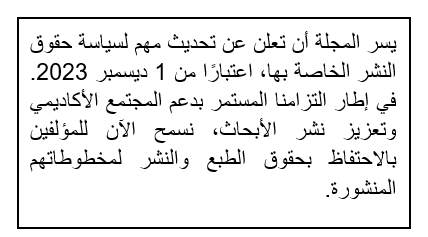
 ©️ 2023 The Author(s). Published by College of Political Science, University of Baghdad. This is an Open Access article distributed under the terms of the
©️ 2023 The Author(s). Published by College of Political Science, University of Baghdad. This is an Open Access article distributed under the terms of the 
